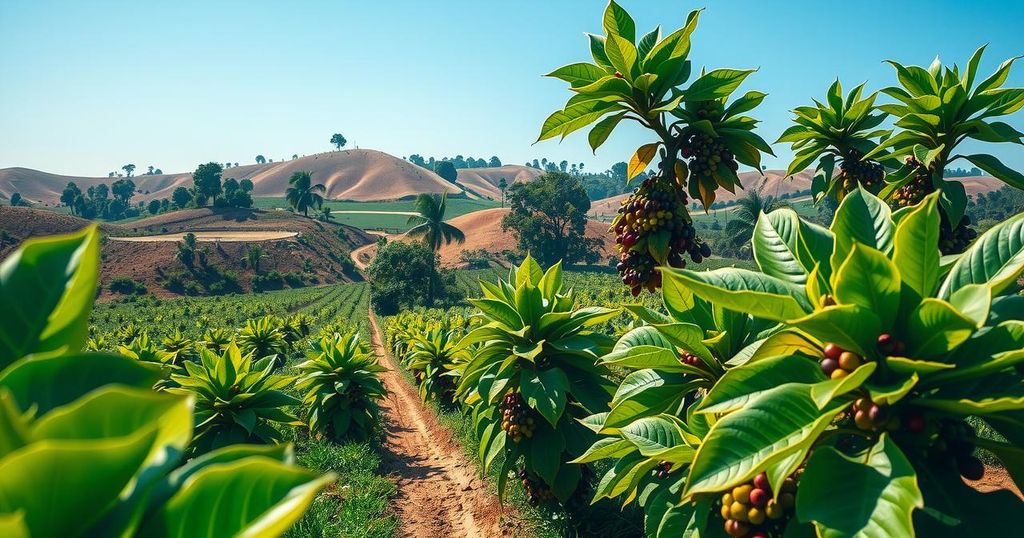Arabica coffee prices are rising due to dry weather in Brazil, with futures reaching a two-week high. The impact of reduced yields and tightening inventories is notable, while robusta coffee prices face pressures from potential increases in Vietnam’s rain. Overall, uncertainties about supply persist as forecasts for Brazil’s coffee production have been revised downwards amid ongoing dry conditions.
Arabica coffee prices have recently been influenced by dry weather conditions in Brazil, with the May arabica coffee closing up +2.90%, while robusta coffee showed a slight decline. The declining rainfall in Brazil poses risks to coffee crop yields, as reported by Somar Meteorologia, noting that the ongoing hot and dry weather could adversely affect crops ahead of the upcoming harvest in May.
The weather forecast for Vietnam indicates possible daily rainfall for the next week, bolstering the prospects for robusta coffee yields, where prices had experienced a decline after hitting a recent high. Meanwhile, Brazil, the world’s leading arabica coffee producer, has reported below-average rainfall, particularly in its largest growing region, Minas Gerais, which received significantly lower precipitation than normal.
Additionally, tightening inventories of both robusta and arabica coffee have placed upward pressure on prices. ICE-monitored robusta inventories dropped to a two-month low, while arabica inventories have recently shown some recovery but remain at a nine-month low. Sellers in Brazil are moving a higher percentage of their coffee harvest early this year, suggesting a limited supply impacting market dynamics.
Concerns over supply continue as Brazil’s January green coffee exports decreased year-over-year, and the country’s crop forecasts have been revised downward due to ongoing drought conditions. These factors collectively heighten worries regarding the long-term viability of Brazil’s coffee production and its potential impacts on the market.
Robusta coffee prices are experiencing support from reduced production in Vietnam, driven by the adverse weather impacting yields. Despite these challenges, news of larger export volumes from Brazil could weigh on overall prices, with mixed reports indicating both increases in certain markets as well as drops in global coffee exports.
The USDA has provided forecasts indicating potential increases in world coffee production for 2024/25, but also projects reductions in ending stocks. Contrasting forecasts for Brazil’s coffee production raise further concerns, especially regarding the balance of supply versus demand leading into the next marketing year.
As Brazil grapples with one of its driest periods on record, predictions suggest a continuing deficit in arabica coffee production. The ongoing climatic issues combined with cautious market sentiment regarding future supplies reinforce the complexity of the current coffee market dynamics.
In summary, arabica coffee prices are currently supported by dry weather conditions in Brazil impacting crop yields, while robusta prices are influenced by potential increases in rainfall in Vietnam. Tightening inventories and increased sales early in Brazil’s harvest highlight a limited supply that is propelling prices higher despite global export shifts. Forecasts also reveal ongoing challenges for coffee production in Brazil, with potential long-term ramifications for the industry.
Original Source: www.tradingview.com




